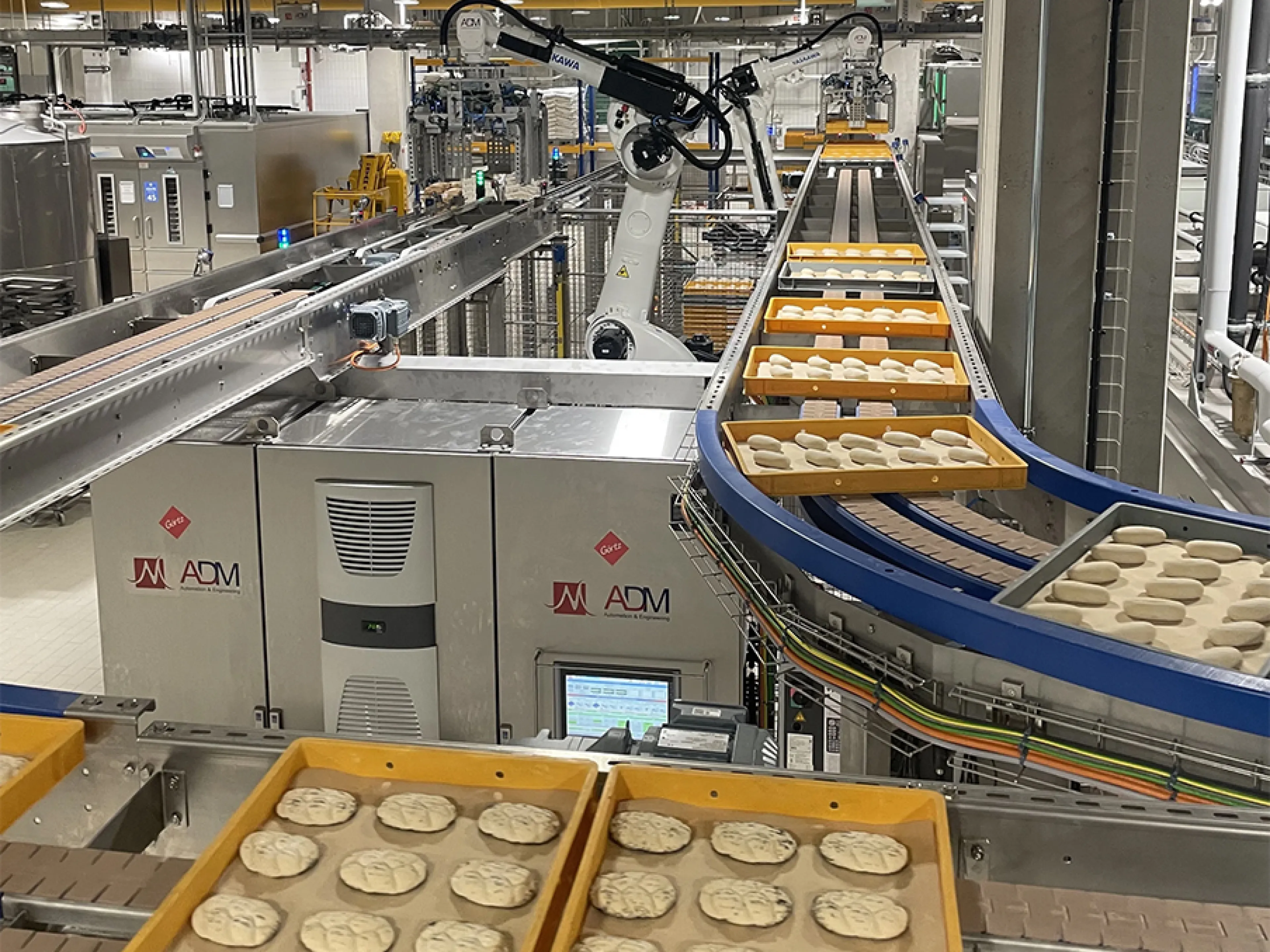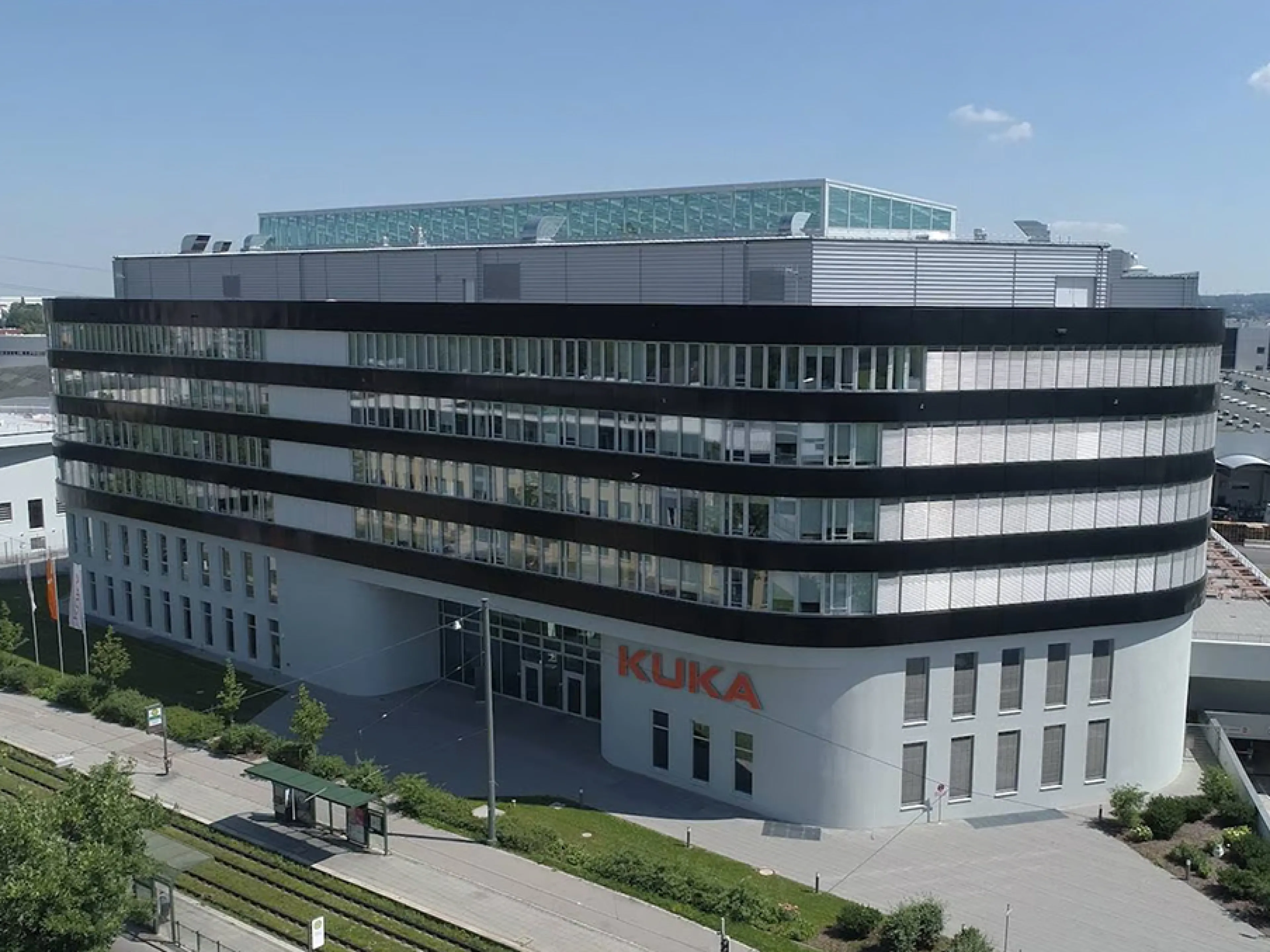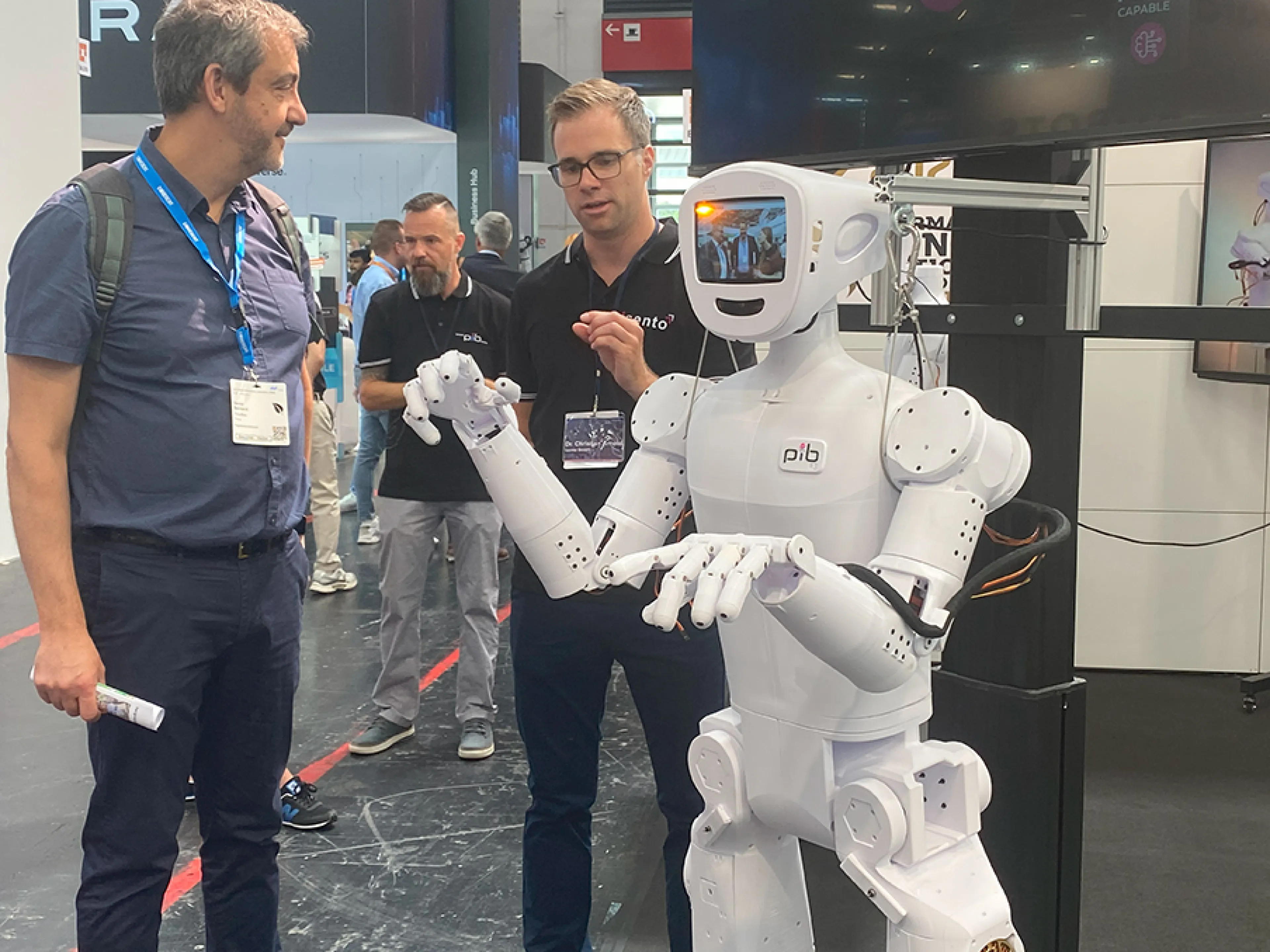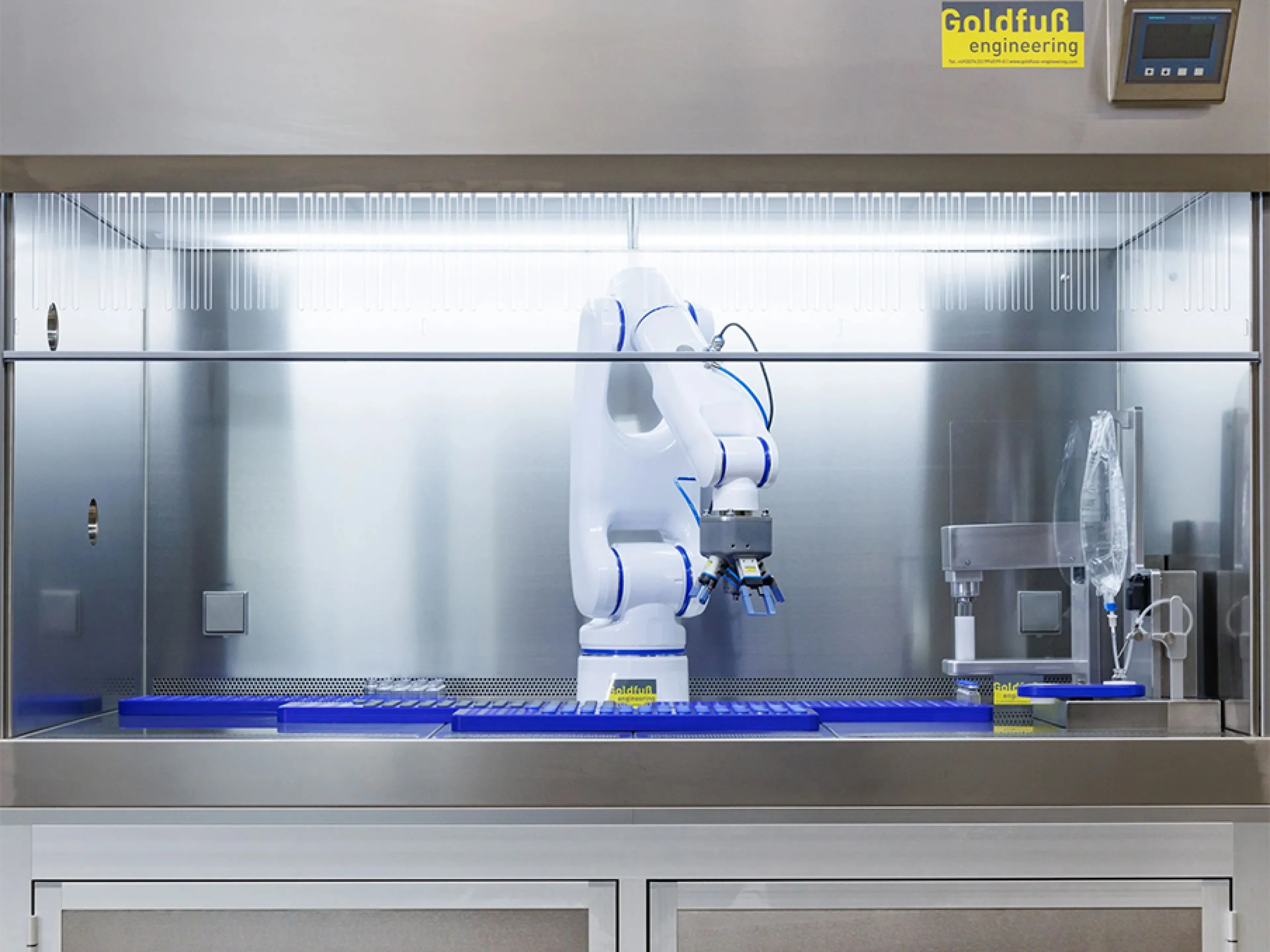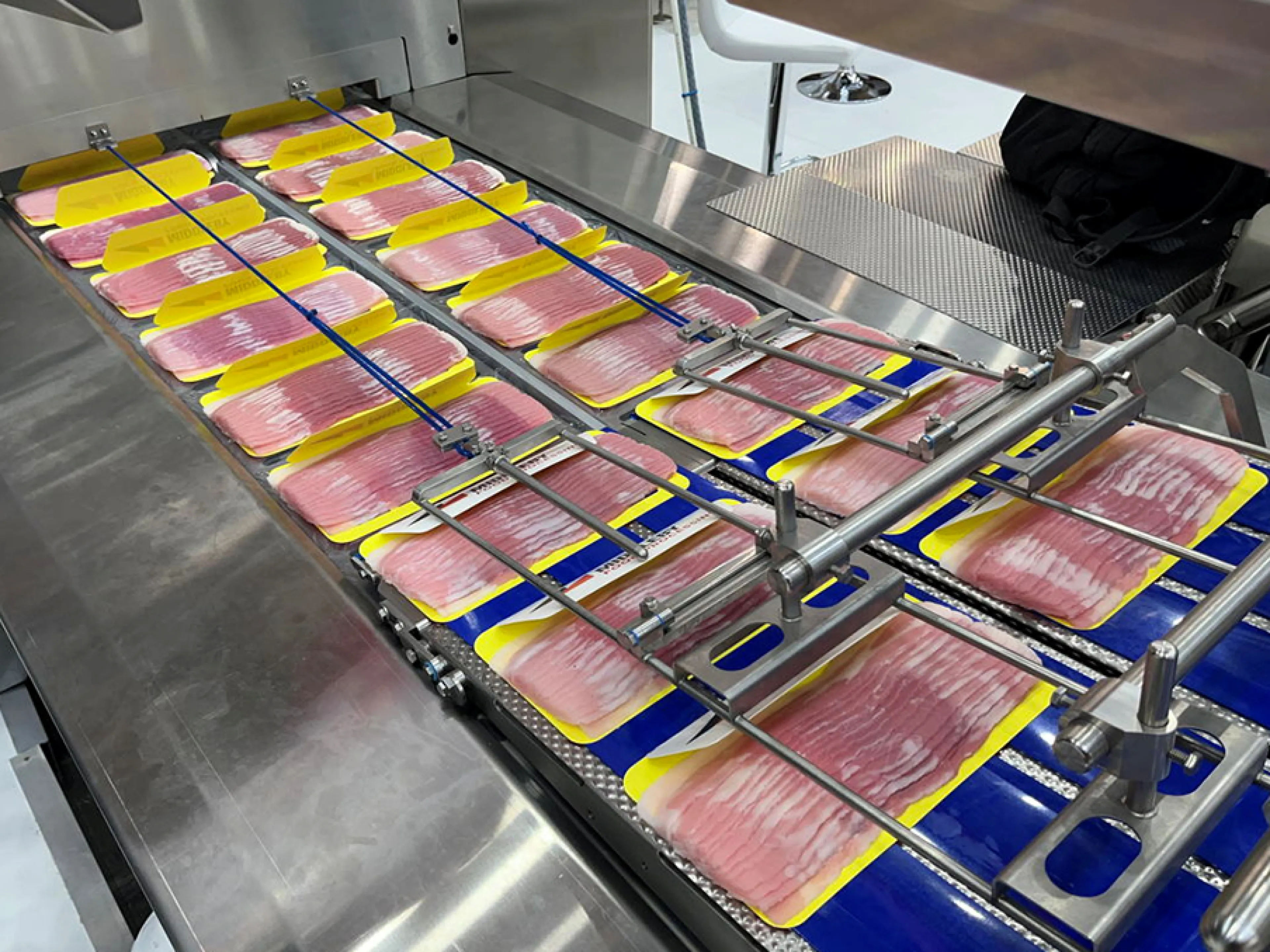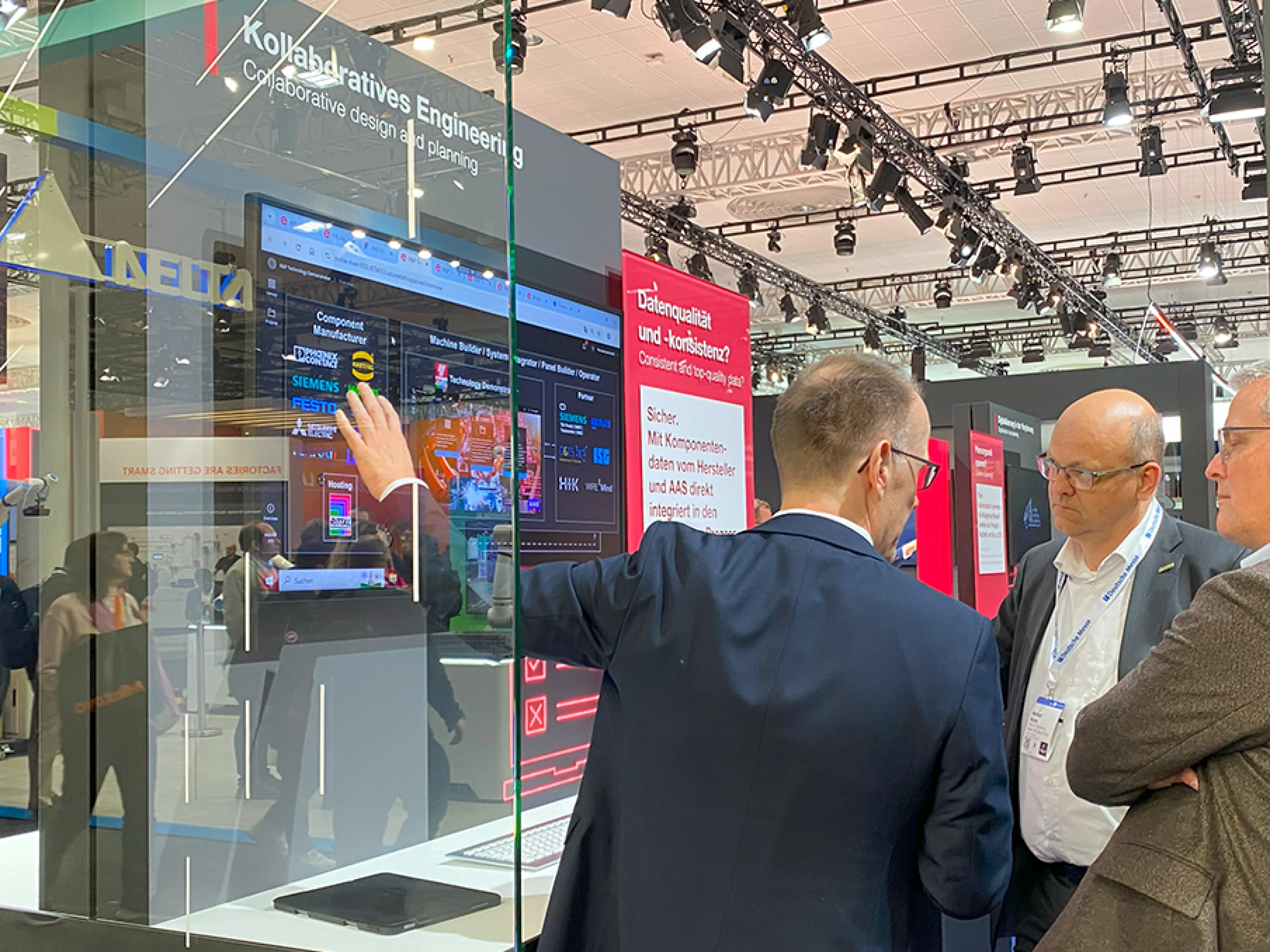
In Denmark, larvae breeding and robot technology are being combined to create a sustainable solution for the global food supply: Scandinavia's largest and first commercial insect farm, Enorm Biofactory, is utilising the efficiency of the black soldier fly and the precision of Kuka's Hygienic Oil robots to produce a climate-friendly source of protein. In the heart of Denmark, 50 kilometres southwest of Aarhus, a literally moving spectacle takes place day after day and almost around the clock in a factory building: Millions of fly larvae will soon be munching their way through their food in countless boxes, while the containers are constantly moved, stacked, emptied and filled by quietly whirring Kuka Hygienic Oil (HO) robots.
Many experts are convinced that insects are the protein source of the future. According to United Nations estimates, the world's population will grow to around 9.7 billion people by 2050. As the average income in many developing countries will also rise, a sharp increase in meat consumption and therefore protein demand is to be expected. Against the backdrop of climate change and dwindling resources, it is clear that an effective circular economy and sustainable food production are more important than ever. The black soldier fly, around which Enorm is centred, could play a decisive role in this.
25 kilos of eggs become 100 tonnes of larvae within twelve days
Just one gram of black soldier fly eggs equates to 30,000 larvae. They gain weight so quickly that 25 kilos of eggs become 100 tonnes of larvae in just twelve days. Jane Lind Sam, COO of Enorm, also emphasises the huge potential of the insect for sustainable protein production: "The larvae of the fly can feed on almost all organic matter. That's why we can feed them with waste products from the Danish food industry that would otherwise be disposed of elsewhere - and turn them into high-quality feed protein for livestock farming." Enorm currently produces two products from the fast-growing larvae: insect meal as a substitute for highly digestible protein feed, for example for fish, poultry, pigs and pets. And immunostimulating insect oil, which can also be used as a food supplement for various animals. Ingredients based on black soldier fly larvae, which are produced responsibly, have a significantly lower carbon footprint compared to other animal protein sources. Insect production is a prime example of a sustainable circular economy that has little impact on the environment and climate: During further processing, the larvae are simply dried. The only thing that remains is water. In addition, some of the larvae are used to produce new eggs. This creates a working cycle.
Kuka robots in use at Enorm Biofactory
The production process itself is also sustainable with maximum efficiency and poses two major challenges: Firstly, the factory needs a complex ventilation system because a lot of heat is generated during the process. But above all, containers, some of which are extremely heavy, have to be filled, emptied and stacked very quickly. Finding the best solutions for this was the task of Rolf Tange and his team. Tange is CTO of the Sealing System Group, a provider of packaging and palletising solutions that has relied on Kuka's reliable technology for decades. "We knew that the flexible Hygienic Oil robots from Kuka would be perfect for Enorm's insect farm," says Tange. "In the first stage, the larvae grow in 30 to 40-centimetre boxes," he explains. After seven days, they are then transferred to larger boxes measuring more than one square metre. And at this point at the latest, the robots are an indispensable aid to any human: "There are 50 kilos of liquid food in there, then 70,000 larvae are tipped on top," explains Tange. "Not even the fittest worker could manage that weight." The six "KR Quantec PA HO" robots from Kuka fill a new crate every seven seconds, 500 per hour, and work 20 hours a day. The system is cleaned in the remaining four hours.
Fully automated system runs as if by itself
In principle, the system runs by itself, as the entire process is fully automated: In fact, only two employees are needed to control everything. Their task is largely limited to checking the systems. The fact that the system runs so reliably is also thanks to the good work of system partner Sealing System. The Hygienic Oil robots with their special H1 lubricants in all axes fulfil the high requirements of the food industry along the entire process chain. If the lubricants come into contact with food, they are absolutely harmless to humans and animals - as is the case with Enorm. Despite its extensive experience in the food industry, the installation of the system at Enorm was also new territory for Sealing System. As 70 percent of the larvae's food consists of water, the factory had to deal with an extremely humid environment, which was no problem for the specially designed robots from Kuka.
Software from Visual Components helped with design and planning
Important processes were tested in advance with Visual Components. The Finnish company, which was acquired by Kuka, specialises in software solutions for 3D simulation in factory planning. Visual Components' software made it possible to simulate in advance the speed and rhythm at which the robots and conveyor systems would have to move. The "Kuka.AppTech" programming concept, which enables efficient and simple robot programming in the shortest possible time, proved to be just as practical. And so the larvae crawl and the robots in the heart of Denmark work diligently and reliably day in, day out, ensuring more sustainable food production with the help of Kuka's innovative technology.
